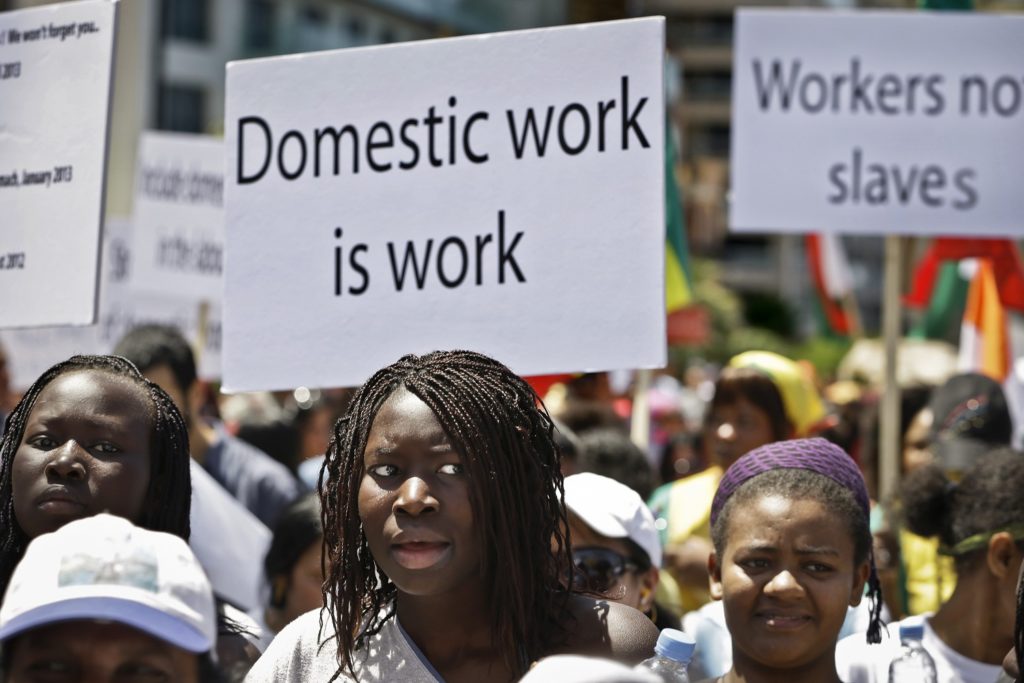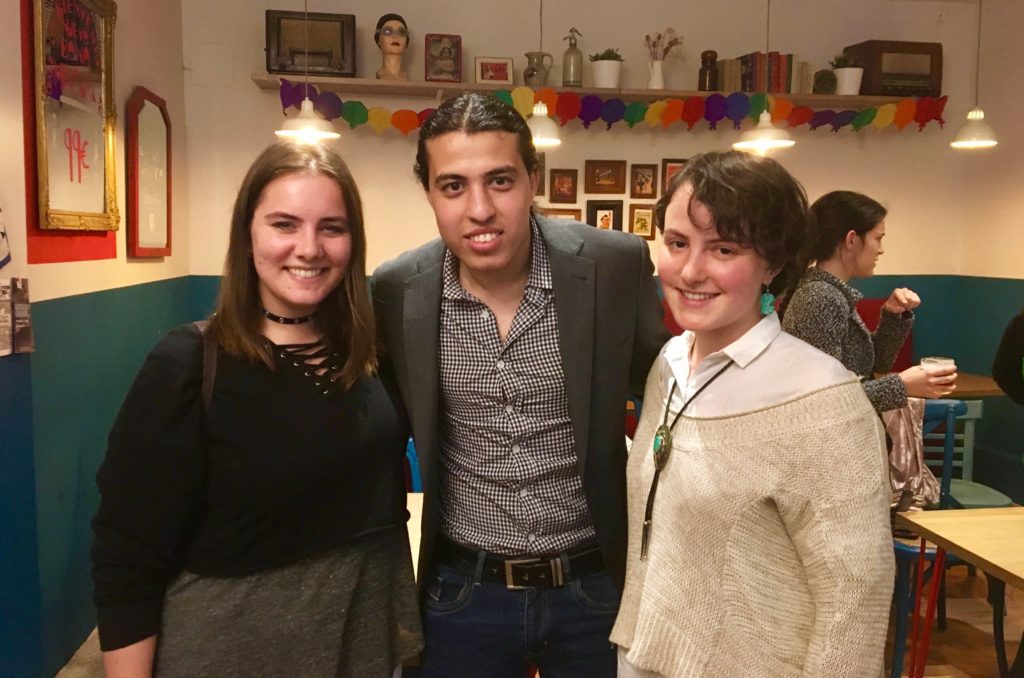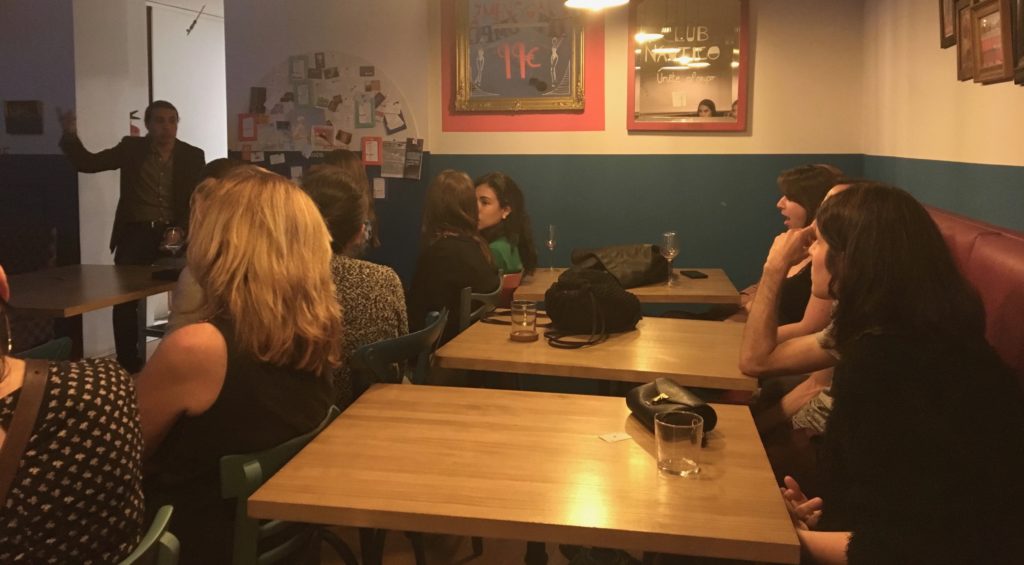
Ahmed Ali wants to make invisible people visible.
“Their passports are confiscated when they arrive so they have absolutely no rights. Many work for 23 hours straight and have nowhere to sleep,” he tells a crowd of solemn listeners in alternating English and Spanish. “Sometimes they’re not even allowed to leave the house.”
Ali is describing the plight of hundreds of thousands of domestic workers brought to Lebanon, often by means of smuggling or human trafficking, to work as live-in maids in middle- and upper-class households. He learned about the issue from a Lebanese roommate here in Madrid and has been working ever since to raise awareness internationally. Alongside other activists, researchers, and lawyers from all over the Arab world, Ali hopes to share the stories of these invisible workers, connect them to one another and to human rights organizations, and ultimately pressure the Lebanese government to address the exploitation of these vulnerable, mostly female workers. This event, a screening of the documentary “A Maid for Each” by Maher Abi Samra, marked the kick-off of the initiative Ali has been organizing since September.

The documentary begins with a number of anonymous voices sharing their experiences of having a maid at home, describing the discomfort and shame they feel taking advantage of such an abhorrent system of labor. But it quickly becomes clear that having a maid in the house is a status symbol in Beirut. Nearly every family has one or more, and those who don’t badly want one.
The best maids, says one voice, are the ones that are invisible, the ones hardly noticed going about their work. Another adds that having maids in the house makes him uncomfortable, that he ignores them, trying to “deny their existence.” Later in the film, one woman describes how having a maid to manage the housework meant that she could pursue a career and be financially independent from her husband. “Her language and her dark skin,” she notes, as if to comfort herself, “makes her less felt.”
The director of the film shows footage from within the agency that smuggles the girls into Lebanon and essentially sells them off to families based almost entirely on their looks, how smart they are, and how submissive they are. The girls come primarily from Ethiopia, Sudan, Sri Lanka, Bangladesh, and the Philippines. When a girl arrives in Lebanon and begins working, all of the money she earns goes back to this agency and others in her home country, until her debts are paid off. Only then can she begin sending money home to her family.
One girl comes into the office insisting that she be moved to another house. She has been sick for weeks and the mother refuses to let her see a doctor. It’s making the long hours of work unbearable. “I don’t see a problem. She feeds you and she doesn’t beat you, you should be grateful,” says the manager of the agency. “We could move you to another family, but they might beat you. Would you like that?”
More voices chime in as the film progresses. One man notes that the authorities are always on the side of the families. If a girl runs away, the police bring her back to the agency to be returned. With no oversight and no accountability, the treatment of the girls is left entirely to the ethics of the individual. Many workers are raped and beaten without consequence. For these reasons, Lebanon has the highest rate of domestic worker suicide each year compared with other countries in the Gulf region.
There’s visibility in death, a man notes as the film comes to a close. It’s as if the public acknowledges the humanity of the maids only when there’s a suicide in the community.
Ali’s campaign “aims to establish a website where domestic workers will be able to seek help in establishing their rights, report mistreatments and violations, with human rights organizations ensuring effective intervention and aid for the workers. Workers will be aided in demanding proper salary, communicating with their family, just hours of work, as well as rights to internet use.” They have created a Crowdfunding page to help cover the expenses of this work, you can donate by clicking here. Alternatively, Ali says, those interested in contributing to the campaign can help by spreading the word. While still in the early stages of the project, Ali has already succeeded in amplifying the voices of these invisible workers who have been silenced for far too long.

Written by Danielle Jacques
Translated by Jenna McDonald



